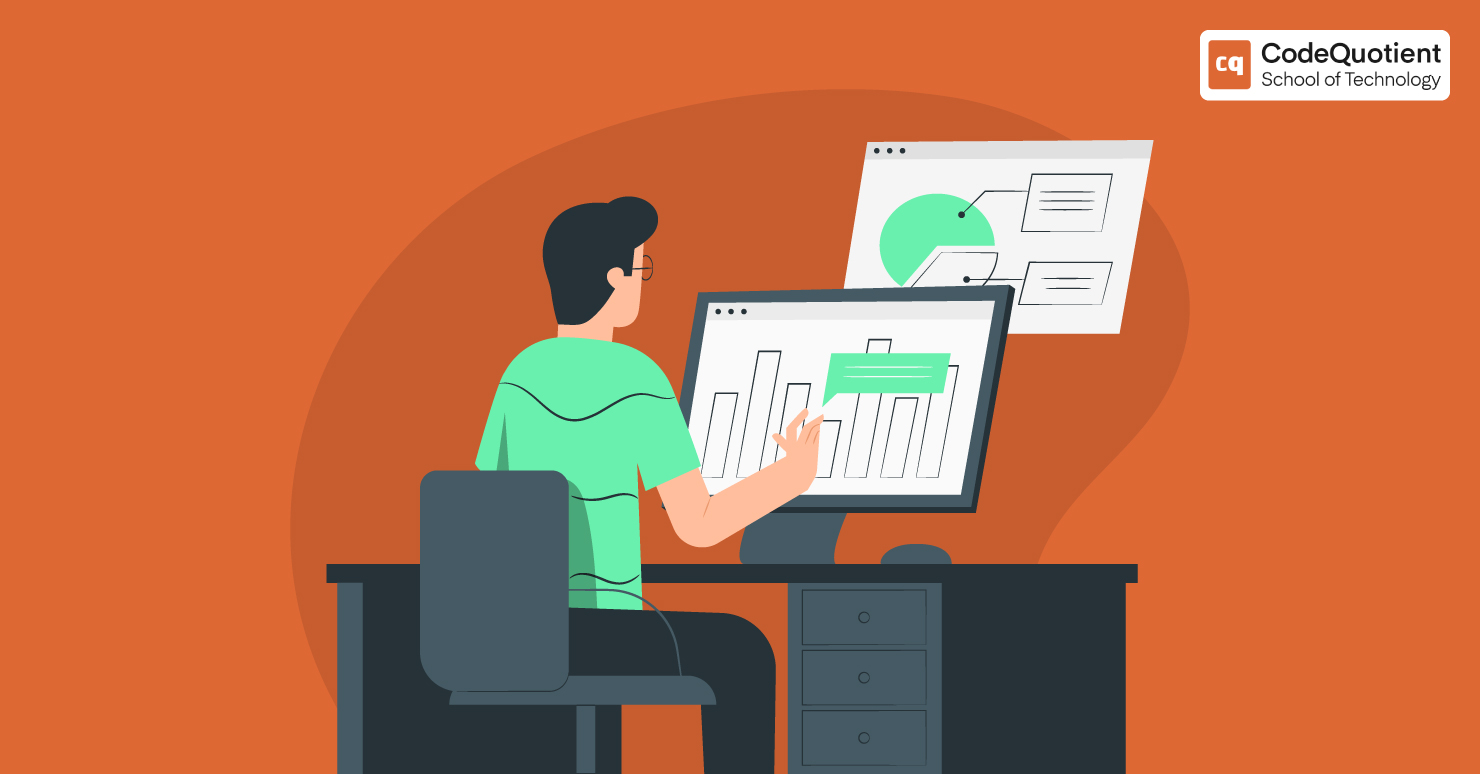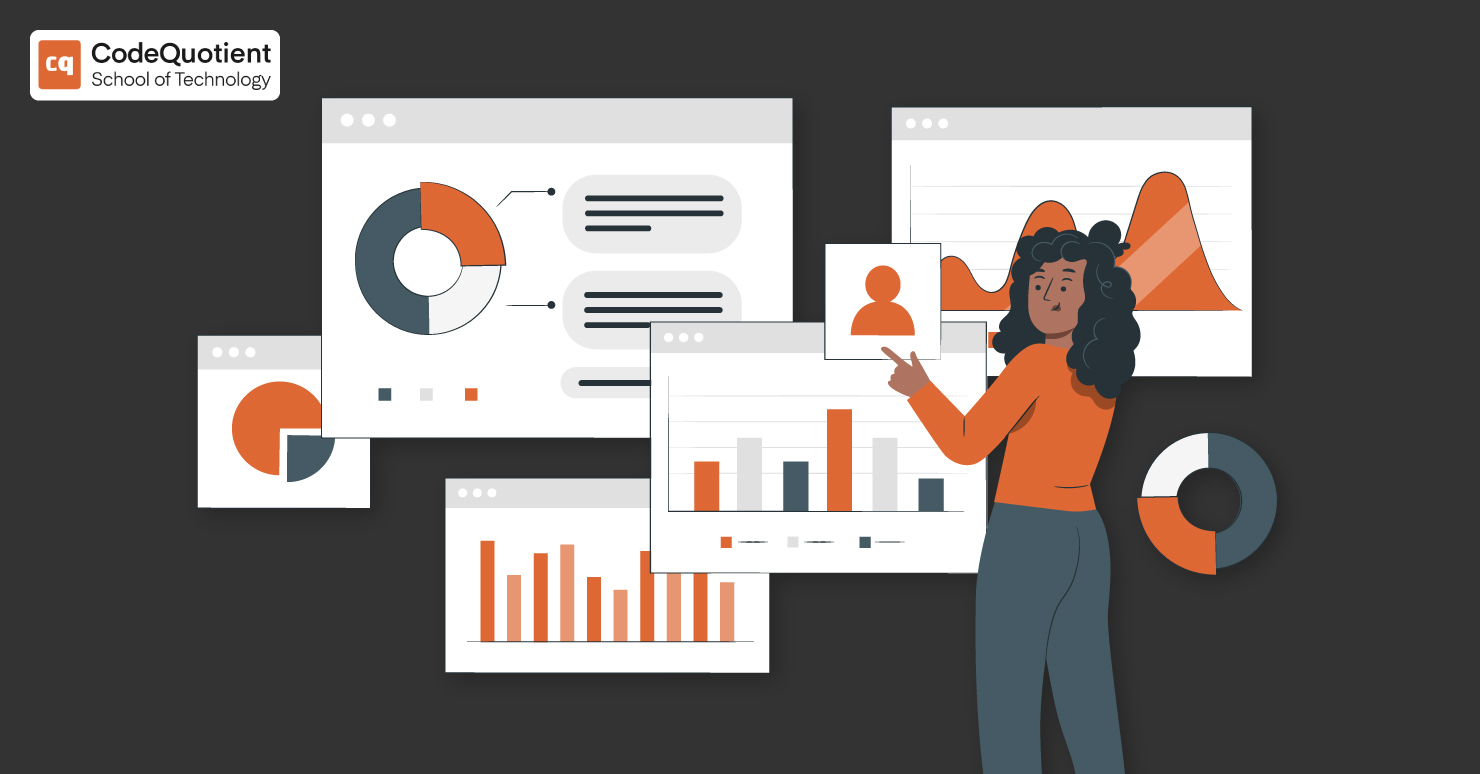Bachelor of Computer Application, or BCA, is a three-year undergraduate course that introduces students to the world of computer applications and software development. In today’s heavily digitised environment, these skills have become crucial and are experiencing a surge in demand.
This has made BCA a highly sought-after course for students after completing class XII. Depending on your desired path, you have a wide range of job choices following your BCA. One such path is a career in data analytics.
Job opportunities for BCA freshers in data analytics are plentiful. Their skills and analytical acumen can be readily placed in diverse roles within the changing and evolving data-driven landscape of decision-making.
Job Opportunities for BCA Freshers: Understanding Data Analytics
Data analytics refers to the collection, transformation, and organisation of data to draw conclusions, make predictions, and drive informed decision-making.
It is a multidisciplinary field that uses a wide range of analysis techniques, including math, statistics, and computer science, to gain insights from data sets.
Data analytics plays a vital role across several industries, as several business leaders use data to make informed decisions.
The field has grown rapidly over the past few years and shows no indication of slowing down. The big data market is expected to be valued at USD 229.4 billion by 2025.
As businesses continue to collect and analyse huge amounts of data, the demand for data analysts is surging.
Job opportunities for BCA freshers in data analytics are on the rise. This is so because there is a growing demand for professionals who can handle and analyse data.
BCA freshers have all the required skills to perform in this domain and achieve great success with roles such as data analysts, business analysts, data engineers, and junior data scientists.
Job Opportunities for BCA Freshers: A Roadmap
Carving a niche in data analytics requires a strategic approach, balancing technical skills, real-world experience, and strong soft skills.
Here is a roadmap meant to provide the key to some exciting job opportunities for BCA freshers in this emerging field:
1. Master the Basics
Gain a strong foundation in data analytics with courses on statistics, data visualisation, and programmable languages like Python and R to understand more complex ideas and functionality in real-life cases.
2. Skill Development
To be versatile in machine learning, equip yourself with technical skills that enable data manipulation, visualisation, and analysis through tools like Excel, Tableau, or Power BI, as well as programming languages like Python or R.
3. Hands-on Experience
Get real hands-on experience through internships, projects, or freelancing work that can link your knowledge to reality to develop practical skills while constructing a professional portfolio.
4. Certifications and Credentials
Show yourself to be able to learn, adapt, and perform excellently within the changing analytics industry by being certified in relevant courses in data analytics or data science from leading learning and career platforms like CodeQuotient.
5. Networking and Professional Development
Expand your network by attending events, seminars, and networking groups dedicated to data analytics with people of the same interests as you to receive insights and possibly employment.
6. Specialisation and Domain Expertise
Differentiate yourself by specialising in areas like healthcare, finance, or marketing analytics, ensuring your expertise aligns with industry needs and, therefore, opens the door to specialised roles and career progression.
7. Soft Skills Development
Develop some important soft skills, including communication, problem-solving, and critical thinking, which will enable you to communicate your findings effectively to non-technical stakeholders, thus justifying further development into areas required in the industry.
Exploring Job Opportunities for BCA Freshers

BCA freshers can take advantage of a multitude of job opportunities because they are skilled in technology and possess an analytical mindset.
Some of the key job opportunities are:
1. Data Analyst
An entry-level data analyst will not be expected to perform business-critical tasks without supervision from someone more senior.
They typically serve as part of a larger data analytics or data science team. In general, their job entails performing tasks that, when combined, are essential to the larger data analytics process.
However, individually, these tasks are not necessarily high-stakes, enabling junior analysts to develop and improve their skills in a relatively safe environment where any errors can be spotted and swiftly corrected.
A fresher data analyst usually handles a range of data entry, data governance, and validation tasks.
2. Business Analyst
A junior business analyst receives training in obtaining, verifying, and documenting different system information and specifications. They serve as liaisons between software developers and end users, doing thorough evaluations and verifications of the system’s capabilities.
This ensures that the product information is properly disseminated. A junior business analyst must participate in the entire system development life cycle and follow the lead analyst’s directions strictly.
3. Data Engineer
Entry-level data engineers should expect most of their everyday tasks to resemble any entry-level engineering job: fixing bugs.
They work on creating and maintaining data pipelines, which function similarly to any other technology in that these pipelines should be continually tested and tweaked.
To manage these systems, entry-level data engineers collaborate with senior-level data engineers. They gain the skills necessary to advance into more senior roles, such as designing and developing these systems, by solving issues and eventually introducing small additions to these data systems.
4. Data Scientist
Junior data scientists assist senior team members in analysing datasets, implementing machine learning algorithms, and constructing predictive models. They preprocess and clean data, perform exploratory data analysis and contribute to model evaluation and validation.
Junior data scientists can also significantly contribute to building such systems since they identify business problems, formulate hypotheses, and derive actionable insights from data.
They also update emerging technologies and methodologies, continuously improving their skills to contribute effectively to data-driven decision-making processes within organisations.
5. Data Visualisation
A junior data visualisation specialist interprets such complex data to present the same visually compelling insights. They use Tableau, Power BI, or D3.js to make interactive dashboards, charts, and graphs that enhance the way to monitor and opt.
Working closely with senior team members, they suggest how visualisations should be refined or designed. This ensures that the whole process of the organisation’s objectives can be fully covered with data presented clearly, concisely, and impactfully.
Job Opportunities for BCA Freshers: CodeQuotient’s Role Data Analytics
CodeQuotient School of Technology thoroughly prepares graduates through a unique coding boot camp model integrated with a Bachelor of Computer Application (BCA) + UG Program in Software Engineering, making them industry-ready on day one.
CodeQuotient equips aspiring professionals with technical skills and industry insights through its comprehensive courses and practical learning approach to carve out a niche in data analytics.
The benefits of joining CodeQuotients’ BCA programme are as follows:
- BCA + UG Program in Software Engineering: Completing this three-year on-campus program will grant you a UGC-recognised BCA degree, and a certificate from CodeQuotient, along with industry mentorship and practical training.
- Curriculum: The curriculum is designed with the future in mind. It provides extensive instruction in C/C++ programming, core web development (HTML, CSS, Bootstrap, JavaScript), and hands-on learning experiences in a variety of domains.
- Practical Learning: They emphasise practical, industry-driven learning through hands-on software development experience. CodeQuotient Software Labs helps students create a strong portfolio by giving them real-time exposure to software development, systems design, and testing.
- Work Experience and Internship: Students get up to 1.5 years of paid internships and are also absorbed by leading companies during final placements.
- Financial Support: Deserving students can get financial support through fee sponsorship, which reduces their financial burdern.
Contact us to learn more about the programme, eligibility criteria, and application process.




